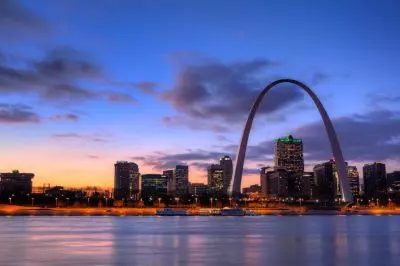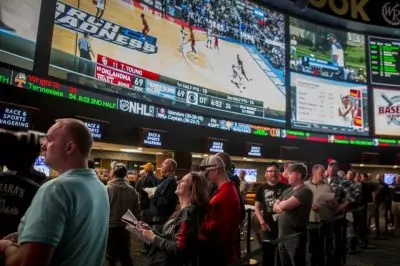 Missouri moved closer to legal sports wagering yesterday after the Senate Committee on Governmental Accountability and Fiscal Oversight okayed a bill that seeks to authorize gambling on sports events in the state. Despite the progress, disputes over the tax rates to be imposed on licensed betting operators continue. If it passes into law, House Bill 2502 would legalize in-person and remote sports wagering at licensed casinos. Only persons who are physically present within the Show-Me State would be able to place their bets remotely.
Missouri moved closer to legal sports wagering yesterday after the Senate Committee on Governmental Accountability and Fiscal Oversight okayed a bill that seeks to authorize gambling on sports events in the state. Despite the progress, disputes over the tax rates to be imposed on licensed betting operators continue. If it passes into law, House Bill 2502 would legalize in-person and remote sports wagering at licensed casinos. Only persons who are physically present within the Show-Me State would be able to place their bets remotely.
Fiscal analysis estimates legal wagering can yield approximately $10 million in annual tax revenue for the funding of various public education programs. House Representative Dan Houx (R), who sponsored HB 2502, stressed in an interview many neighboring states have already authorized wagering on sports, including Illinois, Iowa, Arkansas, Tennessee, and Nebraska.
Another neighboring state, Kansas, is also eager to introduce sports betting regulations. Rep. Houx insisted Missouri should not be the last state to pass an important piece of legislation, something which has happened in the past. However, Senator Denny Hoskins (R), who submitted a rival sports wagering proposal this session, is concerned with some of the language of HB 2502.
Critics Insist on More Funding for Education and Problem Gambling
 Sen. Hoskins insists public education funding should be the focal point of the betting legislation, along with gambling addiction treatment and prevention, rather than the operators’ best interests. Hoskins stressed the bill he proposed could generate as much as $163 million in tax money that would go toward education and veteran initiatives as opposed to the $10 million projected for HB 2502.
Sen. Hoskins insists public education funding should be the focal point of the betting legislation, along with gambling addiction treatment and prevention, rather than the operators’ best interests. Hoskins stressed the bill he proposed could generate as much as $163 million in tax money that would go toward education and veteran initiatives as opposed to the $10 million projected for HB 2502.
Rep. Houx addressed the criticism by stating he did not oppose increasing the current tax rates proposed under his bill. In his words, the final version of the legislation would most likely settle for taxes of around 14%, a six-point increase from the current 8% envisaged in HB 2502. Sen. Hoskins then pointed out that the licensed sportsbooks profiting from the legalization should also cover the costs associated with the negative social effects of gambling.
According to Sen. Hoskins, approximately $250,000 from the state coffers currently go toward funding various problem gambling programs in Missouri. He estimates the state would most likely have to spend between $4 million and $5 million annually to assist problem gamblers. Compulsive gambling would become a more serious issue after the legalization of sports betting, Sen. Hoskins warned.
Rep. Dan Houx countered this argument by explaining HB 2502 features a study that would establish whether the current level of funding is sufficient to tackle problem gambling issues in the Show-Me State.
HB 2502 passed the House of Representatives in March with an overwhelming majority of 115-33. Earlier this month, the Missouri Committee on Appropriations advanced it to the Senate floor with a vote of 8-1. HB 2502 is now heading to the full Missouri Senate for further discussion.